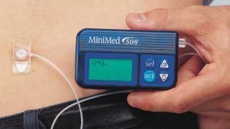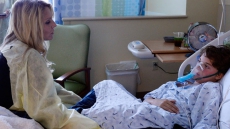Certain drugs can help reverse the effects caused by Parkinson's disease, a study on fruit flies shows.
Mutations in a gene called LRRK2 carry a well-established risk for Parkinson's disease.
The substances called deacetylase inhibitors could fully restore movement problems observed in fruit flies carrying the LRRK2 mutation.
These drugs target the transport system and reverse the defects caused by the faulty LRRK2 within nerve cells.
"Our study provides compelling evidence that there is a direct link between defective transport within nerve cells and movement problems caused by the LRRK2 Parkinson's mutation in flies," said lead researcher Kurt De Vos from the University of Sheffield in Britain.
"We could also show that these neuronal transport defects caused by the LRRK2 mutation are reversible," added co-investigator Alex Whitworth.
By targeting the transport system with drugs, the researcher could not only prevent movement problems, but also fully restore movement abilities in fruit flies.
The LRRK2 gene produces a protein that affects many processes in the cell.
It is known to bind to microtubules, the cells' transport tracks.
A defect in this transport system has been suggested to contribute to Parkinson's disease.
The researchers investigated this link and found that LRRK2 mutations affect transport in nerve cells which lead to movement problems observed in the fruit fly (Drosophila).
"This research gives hope that for people with a particular mutation in their genes, it may one day be possible to intervene and stop the progression of Parkinson's," concluded Beckie Port, research communications officer at Parkinson's UK.
The study appeared in the journal Nature Communications.





